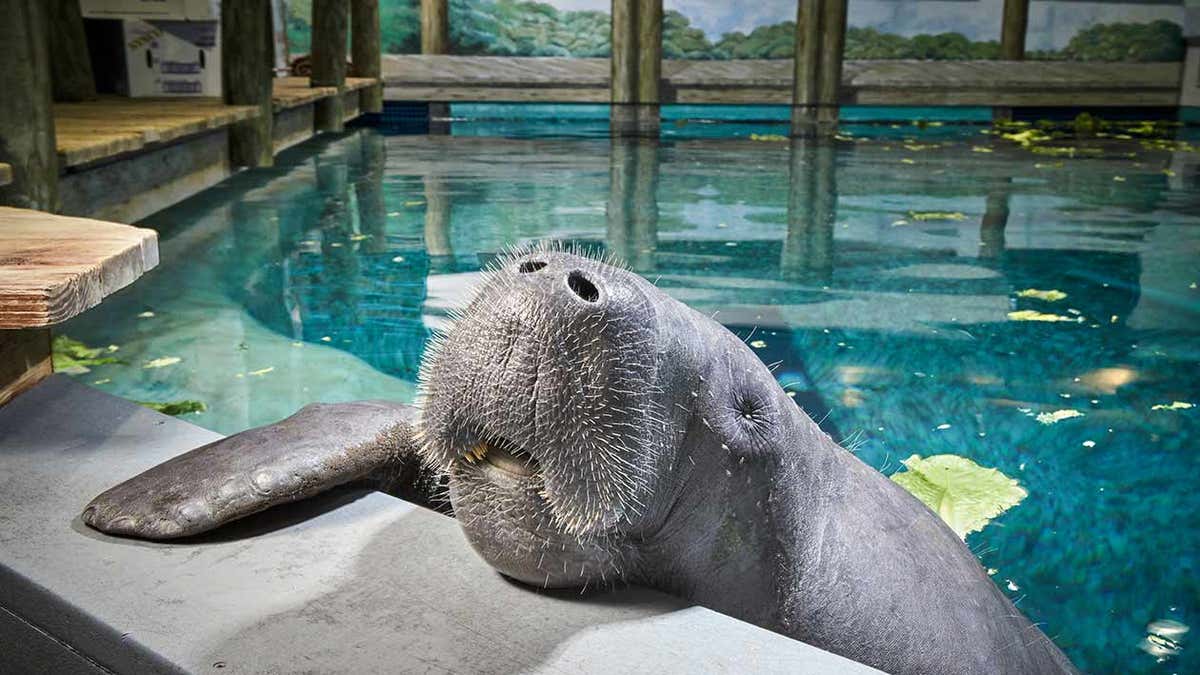
Sixty-eight-year-old Snooty is the oldest manatee living in captivity. (Guinness World Records)
Sixty-eight may not seem that old, but for Snooty the manatee, it's a world record.
Snooty is now the world's oldest manatee living in captivity, the Guinness World Records recently announced. The sea cow was brought to South Florida Museum as an 11-month-old calf in 1949. Now 68 years old, Snooty has earned the world record title.
"We felt it was important to apply on Snooty's behalf, because we wanted people to understand that manatees can live for a long time," Marilyn Margold, director of living collections at South Florida Museum, said in a video for the Guinness World Records. "Taken proper care of, paying attention to their habitats, those things can help with their longevity. They are hearty animals overall." [Marine Marvels: Spectacular Photos of Sea Creatures]
Though they may look hearty, most manatees living in the wild die before they reach the age of 10. Algae blooms, fishing debris and boat strikes threaten these gentle giants, which are listed as "vulnerable" by the International Union for Conservation of Nature (IUCN).
According to the Florida Fish and Wildlife Conservation Commission, which monitors manatee populations, the oldest wild manatee in Florida was 59 years old — with the next oldest having reached 48 years of age.
Snooty's longevity is credited to the fact that he lives in a controlled environment, a 60,000-gallon pool he shares with two other manatees at South Florida Museum. Jessica Schubick, communications manager at the museum, said that while Snooty doesn't seem to mind his pool-mates and other manatees, he's more interested in people. When Snooty turned 67 in July 2015, the marine mammal received birthday cards from fans around the world congratulating him on his incredible age.
The manatee breeding program at the museum offers visitors an educational opportunity to see that manatees do have personalities and a level of intelligence, Margold said.
"I would say that he's intelligent, he's very personable, he has the staff well trained, Margold said of Snooty. "He's just entertaining and calming at the same time."
 
Original article on Live Science.




















